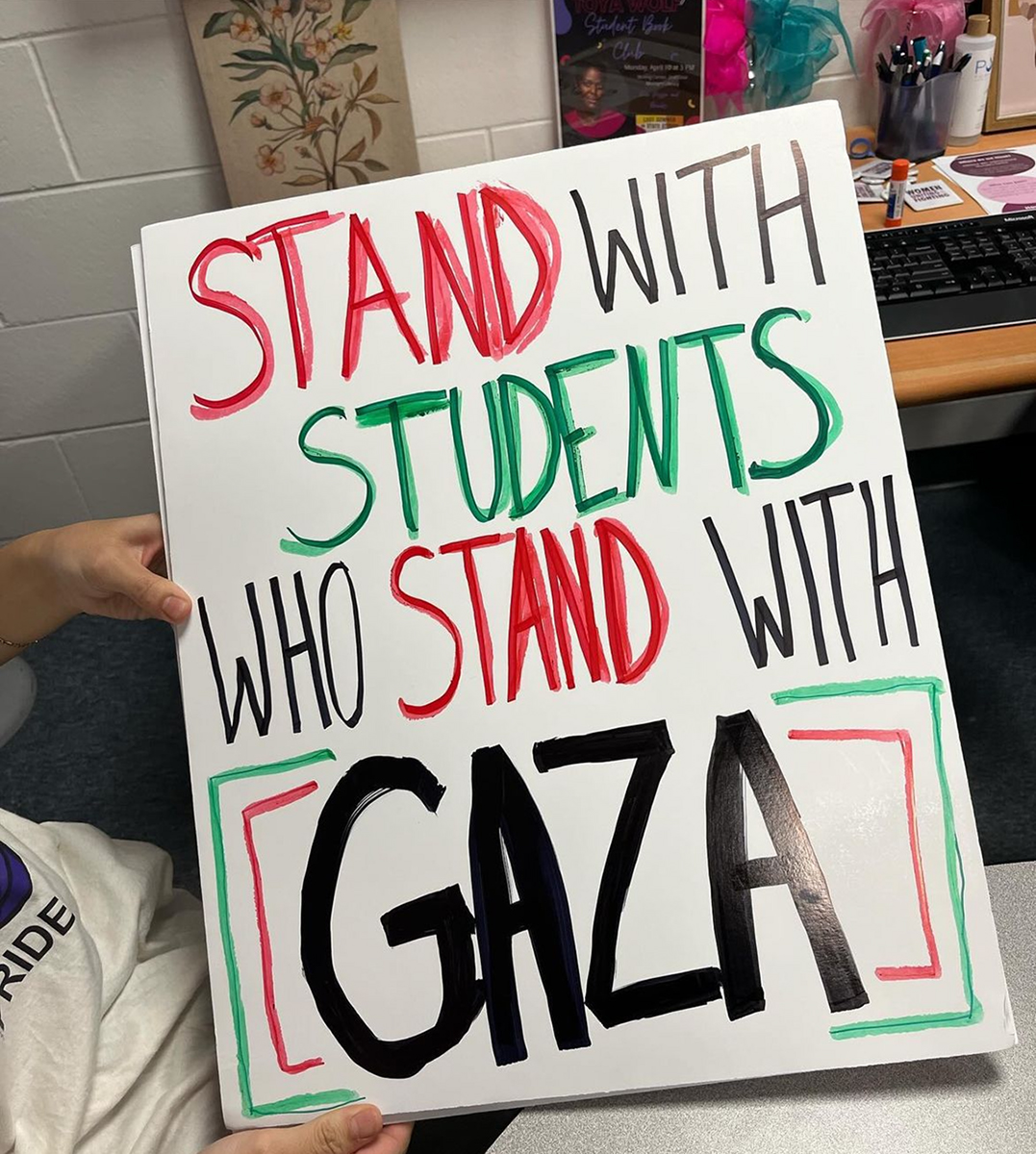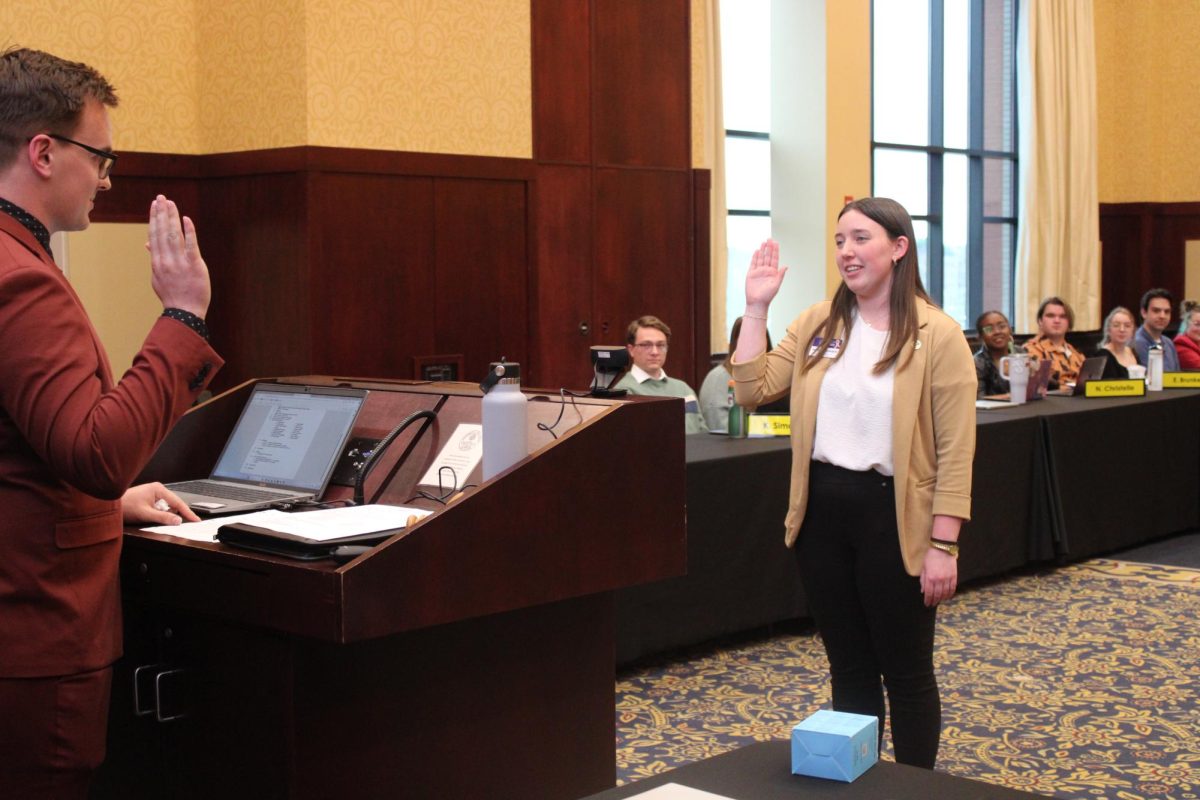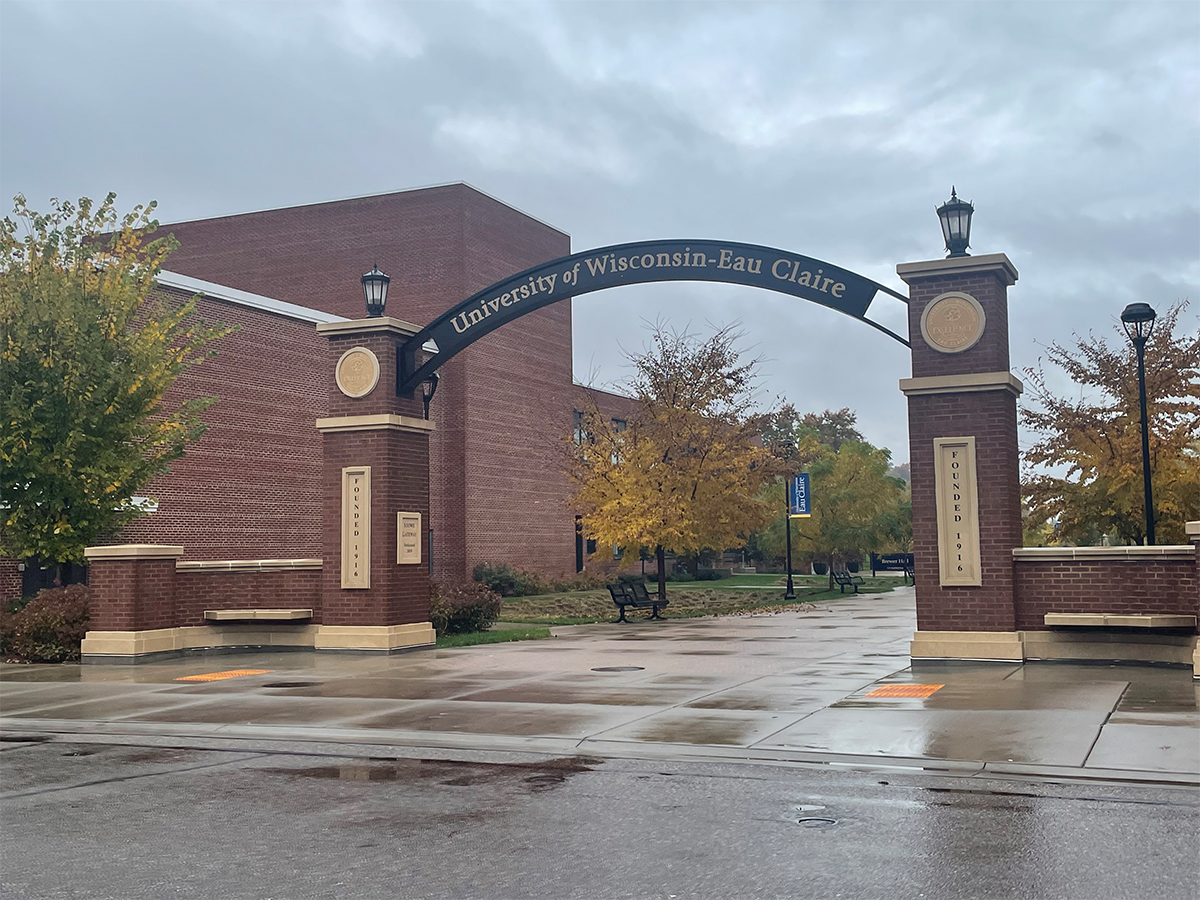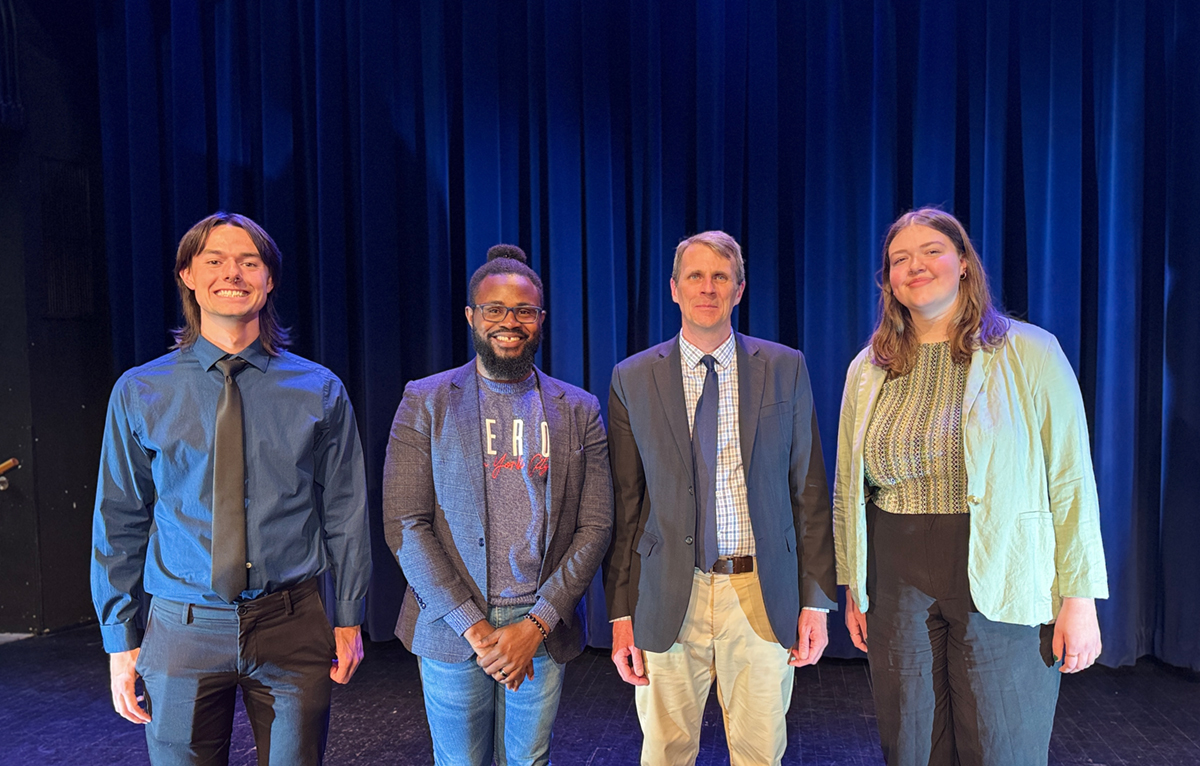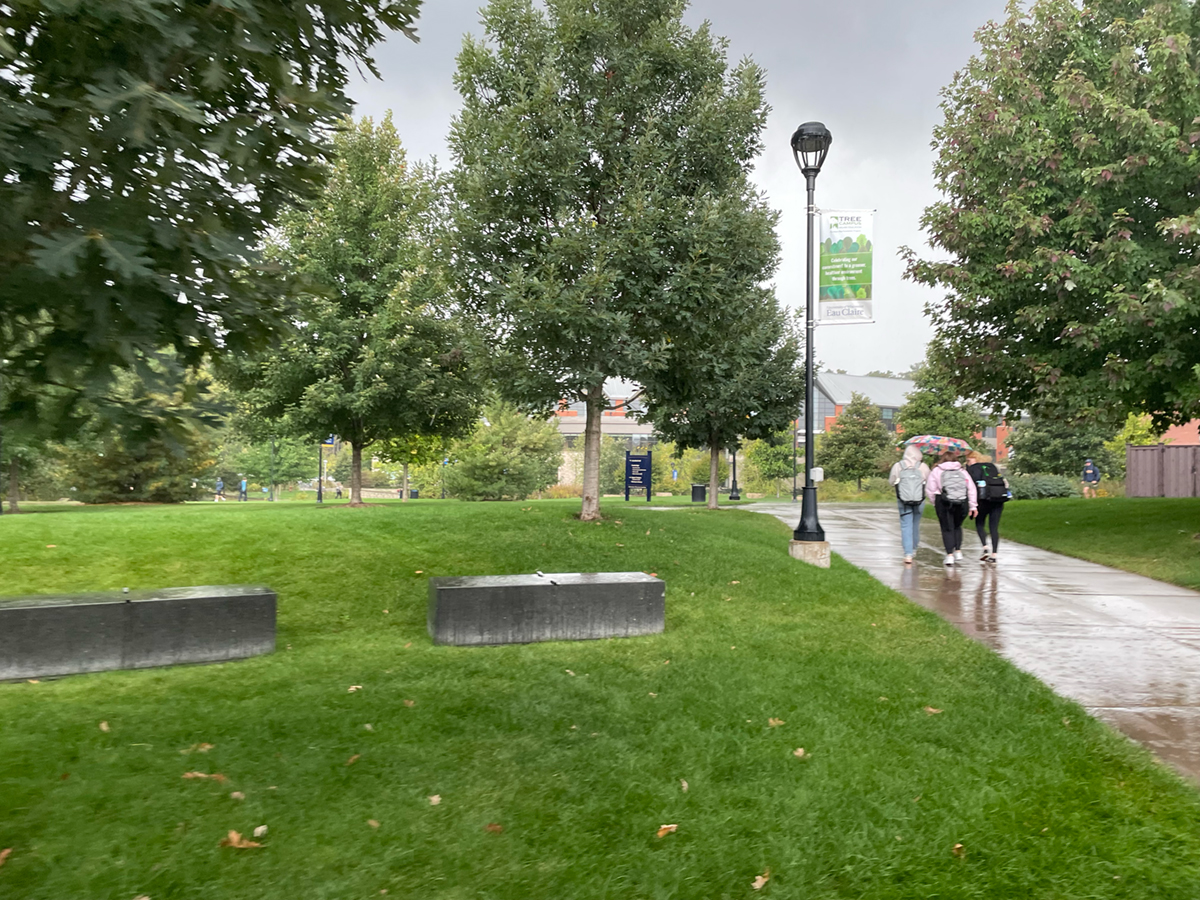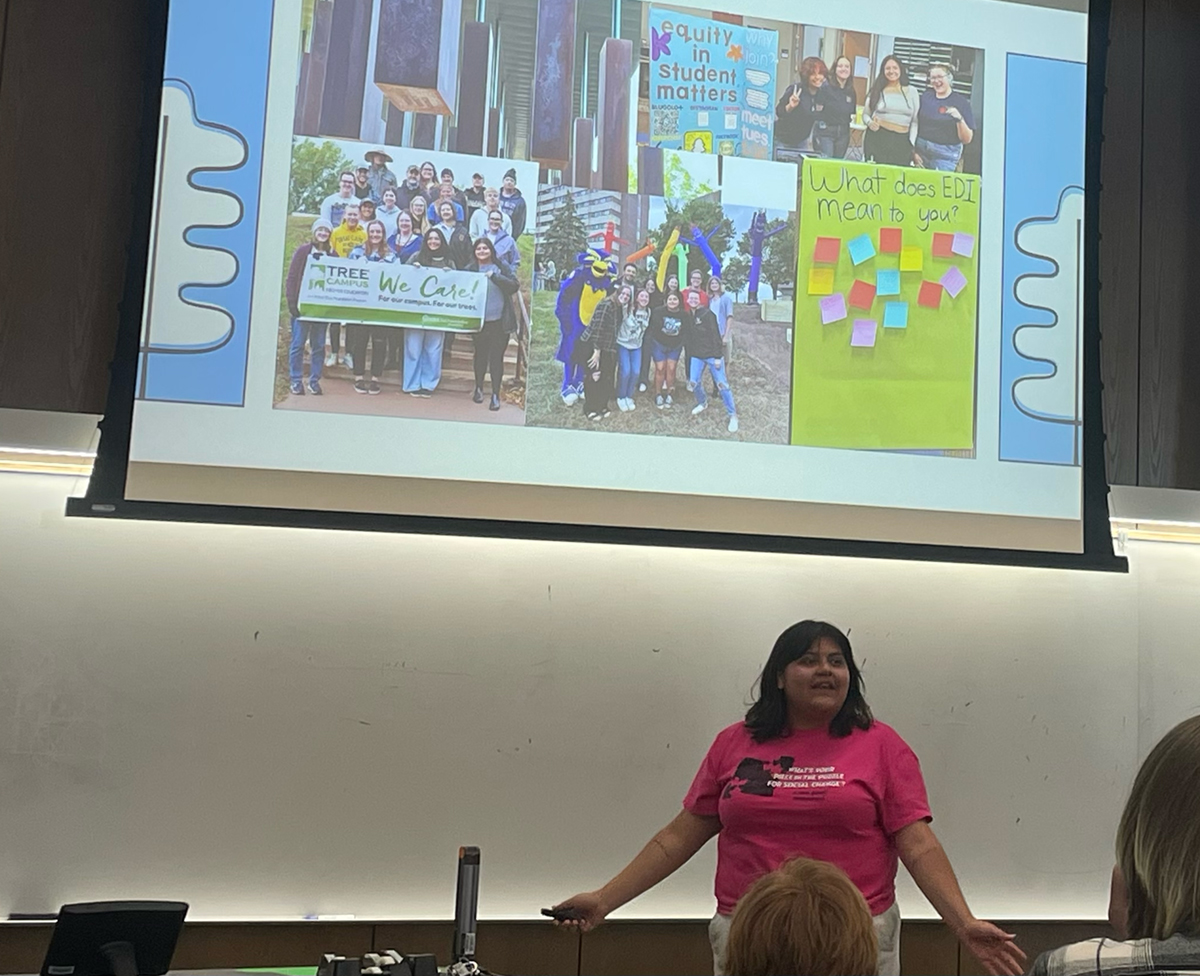Students in a political science class learned more from scandals, debates, videos, speeches, polls, dirty politics and personal attacks than from books this semester.
UW-Eau Claire’s first mock election for the fictitious position of student ombudsperson concluded in a vote Wednesday after a semester-long campaign in assistant professor of political science Geoff Peterson’s Parties, Elections and Voting class (POLS 341).
“This has been far and away the most time consuming project I’ve taken on,” Peterson said.
In lieu of a term paper for the upper level political science course, Peterson gave his students the option of running campaigns in a mock election. The election took place in two of Peterson’s classes. The final candidates from the elections class competed for votes in Peterson’s American National Politics class (POLS 110).
“It was a lot of fun because I watched all the people come in and give their debate speeches,” said junior Brandon Buchanan, a student in the national politics class. “There were attack ads going back and forth. To watch how competitive it got, I’d say it was a big success.”
Peterson explained his idea to both classes within the first day of class. The upper division class broke into four groups, two “blue” groups and two “gold” groups.
These groups fought against the other in the primary election on Oct. 24. During this time, they were campaigning to Peterson’s national politics class.
“It turned out like a real election,” freshman Erica Dakins said. “There was corruption and slander. (In the end), it was who was the least evil you voted for.”
After primaries, Peterson said the campaigning took a negative turn.
That didn’t seem to dampen the overall enthusiasm with which students greeted the election.
“At first, I asked what Peterson was doing,” said junior Cory Brandl, a national politics student. “But once we got into it, it was interesting how a campaign is run.”
Brandl said the simulation opened his eyes to the whole election process.
Problems addressed by the candidates included problems with the Sodexho food prices, parking around campus and upper-level GE credit requirements.
Peterson said a major issue was the loss of Burger King in Davies Center.
The parties, elections and voting class viewed all the video ads throughout the semester in a class Wednesday.
“I’m very pleased with how this turned out on the whole,” Peterson said.
Peterson was fascinated with how the ads turned negative over time, he said.
Sophomore Aaron Olson, the independent candidate who emerged after the primaries, agreed, saying it “takes the election process out of a book and puts it into real life.”
Olson’s simulated campaign budget mirrored the reality of independents’ funding. Due to lack of funding, he was not allowed to create video ads or engage in more expensive forms of advertising.
The blue candidate, Adrian Klenz, said the mock election was more hands-on, and he learned more about campaigns.
Gold candidate Karl Maki agreed, saying the class should be offered every year.
Brandl said all of the candidates spoke realistically on their issues and took their roles pretty seriously.
Adding to the reality was Peterson at work behind the scenes. Using a random number generator, candidates stood a chance of being hit with a fake scandal for which Peterson was responsible.
The virtual polls closed at 8 p.m. Wednesday night and the results were e-mailed to the participating classes.
The winner of the election was Klenz, who took in nearly 56 percent of the final vote. Maki came in second place with 40 percent.
“It’s very hard to be a candidate. I was glad to put it to an end,” Olson said. “It was a long time and a lot of work.
“I wish it were real a election,” he said. “I put so much work into it.”

